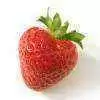-
Welcome to Celiac.com!
You have found your celiac tribe! Join us and ask questions in our forum, share your story, and connect with others.
-
Celiac.com Sponsor (A1):
Celiac.com Sponsor (A1-M):
-
Get Celiac.com Updates:Support Celiac.com!
GAPS Diet For The Poor?
-
Get Celiac.com Updates:Support Celiac.com:
-
Celiac.com Sponsor (A17):
Celiac.com Sponsor (A17):
Celiac.com Sponsors (A17-M):
-
Recent Activity
-
- Scott Adams replied to Ading69's topic in Traveling with Celiac Disease4
Seeking Gluten-Free Advice for My Trip to South Korea!
Yes, wheat is common in most soy sauces now because it speeds up the fermenting process. -
- JoeBlow posted a topic in Gluten-Free Foods, Products, Shopping & Medications0
glutenfreedrugs.com
For 16 years I have relied on the website glutenfreedrugs.com to determine if a pharmaceutical is gluten-free. The website has been down for at least a week. Does anyone have any information about this outage, the status of the website founder and maintainer pharmacist Steven A. Plogsted or a phone number? I did not get a response for my email to glutenfreedrugs... -
- Beverage replied to Katiec123's topic in Celiac Disease Pre-Diagnosis, Testing & Symptoms16
Finding out I’m coeliac whilst pregnant
Sounds like you are in the UK. With blood numbers that high, I thought docs in UK would give an official diagnosis without the biopsy. You should ask about that, so you can get support faster. I'd try to find and print out anything that supports that in your country, get another appointment and take all of it with you. Even in the US now, some docs... -
- Beverage replied to Ading69's topic in Traveling with Celiac Disease4
Seeking Gluten-Free Advice for My Trip to South Korea!
Is soy sauce in Korea also made from wheat like it usually is in US? I'd be concerned that even if asking about gluten, they would not be aware of or think of some like that. -
- normagain commented on Scott Adams's article in Spring 2024 Issue12
Exploring Other Causes of Villous Atrophy Beyond Celiac Disease
Thanks Knitty Your knowledge of the b vitamin is unreal. I don't recall ever having heard of the riboflavin influence on candida and look forward to a little more help in controlling the beast. Carbs are a problem for me particularly bread, rice and pasta. Worse was my addiction to refined sugar, however, pleased to report that I gave it up for the most...
-






Recommended Posts
Archived
This topic is now archived and is closed to further replies.